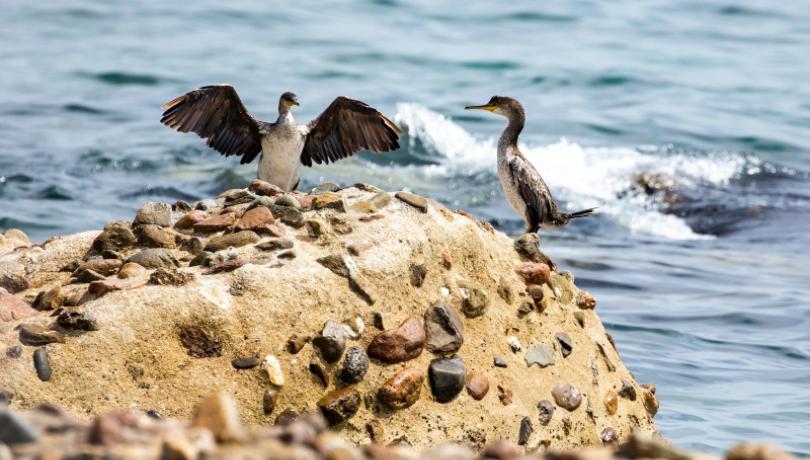The initiative, which is part of the European GUARDEN project, will use a set of technological tools to create a new generation of predictive biodiversity models.

The Metropolitan Area of Barcelona (AMB) and the Institut de Ciències del Mar (ICM-CSIC) have publicly announced BioPlatgesMet this week, a citizen science project whose primary mission is to promote sustainable management of beach and dune ecosystems, analyse the assessment of the impacts of current and future actions and strategies and implement effective solutions for the protection of coastal ecosystems. The data collected will be analysed to contribute knowledge about biodiversity and the conditions of coastal ecosystems.
Additionally, impacts will be assessed for future action and strategy planning, advancing the sustainable management of these spaces, balancing public use with species conservation, and addressing climate change challenges.
BioPlatgesMet is one of the initiatives within the European project GUARDEN (Horizon Europe programme) in the metropolitan area of Barcelona, with the participation of AMB along with the Institute of Marine Sciences (ICM-CSIC) and the Metropolitan Institute, contributing to the project with 15 partners from 8 different countries.
The main objective of BioPlatgesMet is to protect the biodiversity of metropolitan beaches, preserve the benefits that nature provides to society, and raise awareness among citizens about its importance. This citizen science initiative will collect data on beach biodiversity with geolocation, vegetation mapping, and species tracking in the beach-dune ecosystem.
The project aims to achieve these objectives
-
Obtain a comprehensive database of the biodiversity of species found in the beaches and dunes of 8 municipalities.
-
Document and analyze changes in species distribution and vegetation cover as a result of management actions to assess their impact.
-
Create a complete list of problematic invasive species and corresponding management strategies.
-
Develop and implement effective strategies to protect and enhance the existence of protected species.
-
Launch educational programs and public participation initiatives to encourage biodiversity data collection.
-
Conduct surveys and dialogues to measure and understand visitors' perceptions and knowledge of beach biodiversity and ecosystem services.
-
Empower citizens in the analysis and discussion of collected data.
Methodology
Volunteers in the BioPlatgesMet project record their observations in the MINKA app or website, a participatory platform where the public collaborates with the research community. Volunteers provide a photograph of a living organism, information about its location, and the date. Observations can be made autonomously or as part of periodically organised guided activities. No specific frequency is required for data submission; it depends on each person's availability. This methodology is accessible to anyone with an interest in nature, even without scientific knowledge, as biodiversity experts subsequently validate all data.
A Paradigm Shift in the Management of Public Spaces: "Proactive Consumers" of Metropolitan Parks and Beaches
This project consolidates the strategy of AMB in the comprehensive management of metropolitan parks and beaches, where users and the public become key actors in their conservation, and the data they collect helps improve the design and planning of public management policies. In this regard, in June 2022, AMB received the European New European Bauhaus award for dune regeneration and reconnection with nature.
Some Case Studies
The GUARDEN project plans to conduct 4 case studies to analyse, evaluate, and improve specific ecosystems in 8 different countries. This evaluation will allow the evolution of services, capabilities, effectiveness, and applicability of developed solutions. Spain participates in the biodiversity vs. urban coastal management theme through AMB and the Institute of Marine Sciences (ICM-CSIC). The other 3 practical cases are as follows:
-
France and Madagascar through CBNM (Port-Cros National Park): conservation and development of urban and transport infrastructure.
-
Greece through ENV (Enveco SA, Environmental Protection And Management): a structured framework for monitoring the ecosystem after the construction of wind parks.
-
Cyprus through FREDU (Frederick University): species loss caused by the expansion of an energy centre.